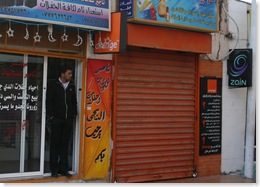Roshan, Afghanistan’s leading GSM operator announced it has topped three million subscribers, with one million customers being added in the past six months.
 Roshan’s market segmentation includes targeted call plans for the mass market, business users and the youth. The operator will place more emphasis on the women and youth segments in 2009
Roshan’s market segmentation includes targeted call plans for the mass market, business users and the youth. The operator will place more emphasis on the women and youth segments in 2009
The company launched commercially in 2003, and as of November 2008 had a 41 per cent market share ahead of competitors Afghan Wireless, a local privately-owned company, and the UAE’s Etisalat. Afghan Wireless had two million customers as of June last year.
Roshan has focused on differentiating the market and last year introduced three plans tailored to different market-segments: Aali for the mass market; Saadat targeted at business users; and Yaraan, focused on the youth segment. CEO Karim Khoja told Comm. in December that the operator will place great emphasis on the women and youth segments during 2009.
Roshan also partnered with Vodafone to launch M-Paisa last October, the country’s first mobile banking product. M-Paisa provides consumers, businesses, local banks and employers with an accessible, cost effective and safe method for funds transfer, airtime refill, salary payment, microfinance transactions and cashless travel. The service is now offered in 10 provinces throughout the country.
“M-Paisa has the potential to boost economic growth through the elimination of common financial barriers, especially in remote areas and in particular to women, who often are the sole supporters of the family,” commented Roshan’s chief operating officer Altaf Ladak. “Through M-Paisa and Roshan’s mobile network coverage, we provide an important vehicle for the economic regeneration of Afghanistan,” he added.
Roshan’s coverage reaches 56 per cent of the population, including 226 cities and towns across 33 of the 34 provinces in Afghanistan.
The company is owned 51 per cent by the Aga Khan Fund for Economic Development (AKFED), while Monaco Telecom International owns 36.75 per cent and Nordic operator TeliaSonera owns the remaining 12.25 per cent.







